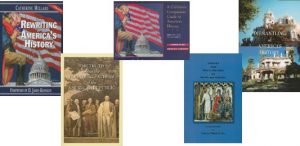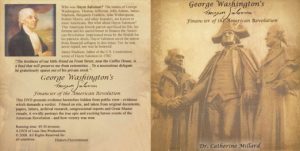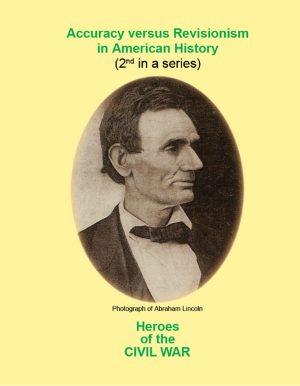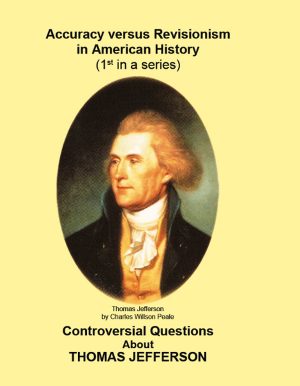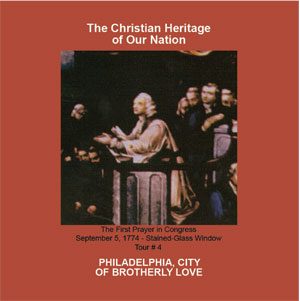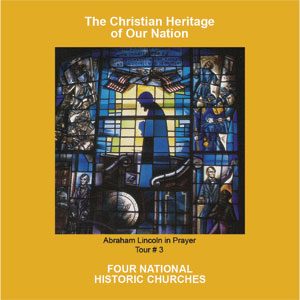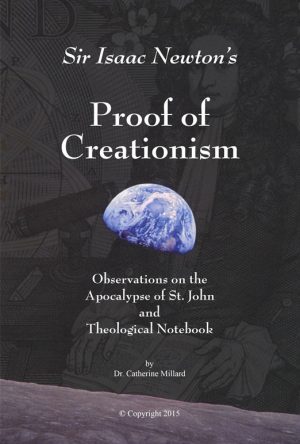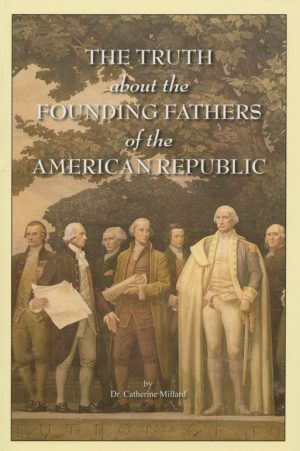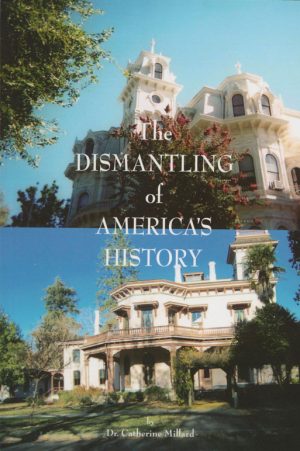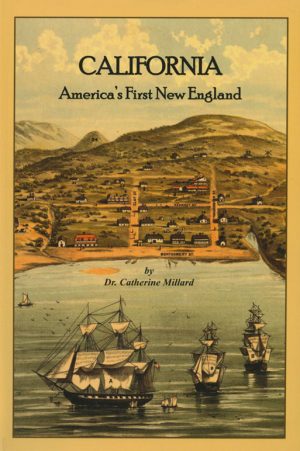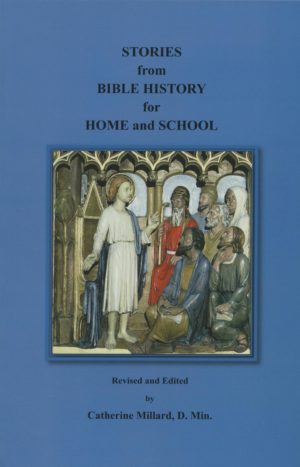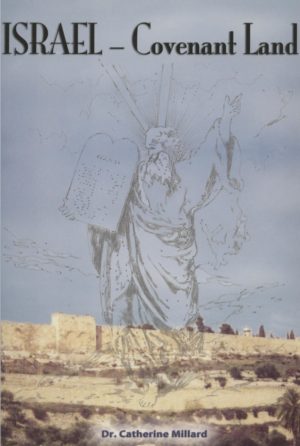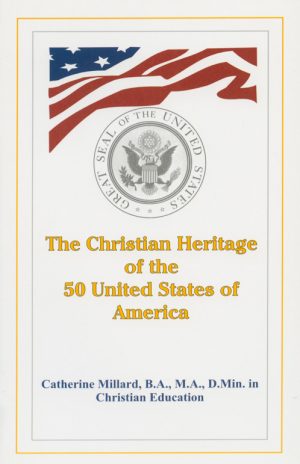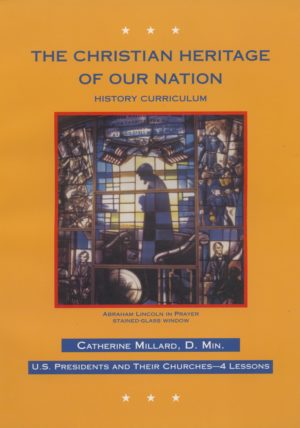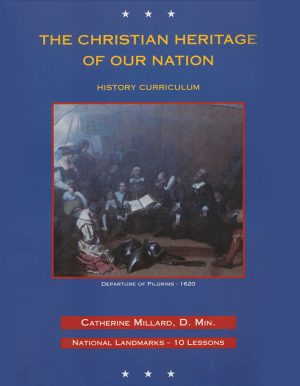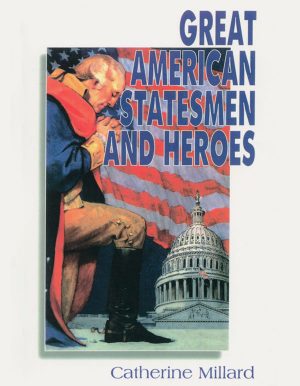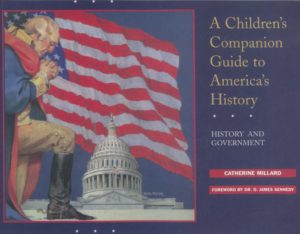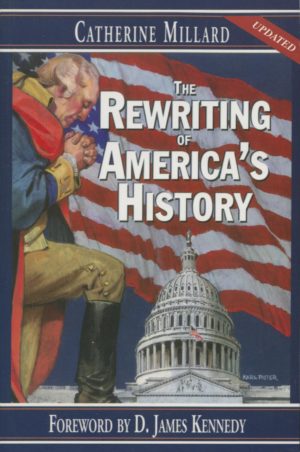On April 25th, 1799, Rev. William White, D.D., Rector of Christ Church, Philadelphia and Bishop of the Protestant Episcopal Church in Pennsylvania preached a Sermon at Christ Church and St. Peter’s Church, entitled, The Duty of Civil Obedience as required in Scripture, which he subsequently sent to his intimate friend and former parishioner, George Washington at Mount Vernon. Washington’s response to his pastor reads,
“Mount Vernon
May 30, 1799
Rev. Dear Sir,
The Sermon on The Duty of Civil Obedience as required in Scripture, which you had the goodness to send me, came safe a Post or two ago; and for which I pray you to accept my grateful acknowledgements. The hurry in which it found me engaged, in a matter that pressed, has not allowed me time to give it a perusal yet; but I anticipate the pleasure of the edification I shall find when it is in my power to do it. With every respectful wish, in which Mrs. Washington unites, for yourself and the young ladies of your family, I am with great esteem and regard, Dear Sir, your most obedient and humble servant,
GEORGE WASHINGTON.” 1
Rev. Dr. White’s preface and excerpted Sermon ensue:
A SERMON
On the DUTY of CIVIL OBEDIENCE
As Required in SCRIPTURE
“The following sermon was preached in substance, and the greater part of it in the very words in which it stands, in Christ Church and St. Peters’ on the 5th November 1775, at the beginning of the Revolutionary War; and in the presence of many members of the Congress, then assembled in this city. It is well known, that the aforesaid day was celebrated in this country, as in other parts of the British empire, on the double account of the disappointment of the Gunpowder Plot* in the reign of King James the First, and of the revolution achieved by King William the Third. In the aforesaid year, the commemoration happening on a Sunday, and one of the events being the failure of a wicked conspiracy against legal government, while the other was the success of an honourable resistance of arbitrary power; and the service of the day being full of reference to the two subjects; it appeared to the preacher a suitable opportunity, for stating the ground of civil obedience, as it is laid in Scripture; and for drawing a line of distinction, of which the events referred to appeared to him a happy illustration. Not many years ago, the sermon was again preached in the same churches, on the return of the anniversary of Independence. The author, having preached it the third time on an occasion lately past, with a small addition relating to present circumstances, complies with the request for publication, presented to him by many whom he esteems. He can with great sincerity declare, that when the proposal was made, he felt great reluctance in complying with it: And yet, on reflection, this was considerably lessened by the consideration, that he was delivering to the press a standard of what are and have been his sentiments on a subject, on which he has sometimes, from a sense of duty, addressed his hearers.
A DISCOURSE, etc.
Romans, Chapter 13, verses 1, 2.
“Let every soul be subject unto the higher powers: For
there is no power but of God: The powers that be are
ordained of God: Whosoever therefore resisteth the
power, resisteth the ordinance of God: And they that
resist, shall receive to themselves damnation.
The only way in which a minister of the Gospel can adapt his discourse to the civil conduct of his hearers, is by explaining and enforcing certain precepts of Scripture, which have a reference to the subject. This falls within his sphere and may be sometimes useful; because those precepts have been variously misrepresented, as it has suited the purposes of faction or of despotism; and thus, doctrines of the most destructive tendency have been founded on a system of Divine truth, in itself wholly calculated to give glory to God and to promote peace and good will among men…And as to the duty to which we are principally summoned, of humiliation under a sense of our transgressions, I trust, that it will be perceived to have a near connection with my subject. For the motive of the Chief Magistrate in calling our attention to the duty, is its relation to existing dangers: which can never bring material injury to the State, except through the instrumentality of licentious passions, in their resistance of the Divine will. Accordingly, I cannot more properly conform to the design of our being assembled, than by opening to you the ground of civil obedience, as it stands in Scripture. And altho’ the religious support thus to be erected is to sustain what you will daily hear rested on the nature of the social state; yet let it be remembered, that no such theoretical contemplation of the subject has been found sufficient in practice, for the retaining of men in subjection to law and government. No; it is nothing less than the sense of an over-ruling Being, and the conviction of His exercising His administration on earth, thro’ the delegated authority of those, who, through His Providence, are clothed with power, which can be a sufficient counterpoise to the bad passions of our nature: Passions, which are continually exciting in some members of the community, the expectation of raising private gain and happiness, out of public loss and misery…
The first of these opinions, is the indefeasible right of Princes, to the obedience of their subject; a right not to be set aside, it is said, nor altered, by any law, for the avoiding of any evil, or for the obtaining of any good to the community. I mean the opinion, which, within the present century, and in an empire of which we were a part, produced two rebellions, in support of this imaginary right of a lineal successor, in opposition to the double right of legal settlement, and of peaceable possession. Far be it from me to abridge any measure of charity, which it may be thought reasonable to extend to unwarrantable actions, when they flow from a misguided conscience: And indeed, I think, that in the present instance, much is due. But there can hardly be a principle, more directly tending to kindle and to keep alive the flames of civil discord; and that, not for the obtaining of any public good, but to assert the pretended right of an individual, who may happen to be one of the most weak or the most wicked of his species…
And as it is a principle full of mischief, so also, it seems to have no foundation, either in reason or in the Gospel. It has none in reason, because, if it were true, we might expect to find the rule of succession as clearly defined by that faculty, as the other rules which are to be the guides of our moral conduct; whereas succession, whether applicable to sovereigns or to individuals, has been various in different nations, and always held to be the subject of law: I say of law; who being allowed to speak on the question, may be expected to declare herself, in a matter of public concern, with the view to the public good; and not to be limited to the narrow scale of individual interest. And it has as little foundation in the Gospel, because whatever may be either the limits or the extent of its precepts, they evidently relate to the present possessor of the power; without any reference to the means by which it was obtained.
On this account, I consider the second opinion, as the more consistent, although the more extravagant error of the two. The opinion I mean, is that of the duty of submission to the civil authority, in whatever hand it may be lodged; to whatever extremes it may be abused; and whatever constitutions or laws it may contradict. But this is inconsistent with a universally acknowledged characteristic of Christianity; viz. its not intermeddling with the civil constitutions of countries; and its leaving of their different policies, to the principles on which they have been respectively founded. Whereas, let the opinion mentioned be admitted and acted on in Christian States; and immediately it follows, that all legal boundaries of prerogative are done away; that one simple and absolute dominion supersedes the various modifications of power; that the first Prince, or the first Robber, who will seize all, shall from that moment possess all, to be governed by himself, and by his successors, as their lusts or as their fancies may direct…
Nevertheless, with all due value for the love of country thus manifested, I may predict, that it will not be permanent in its effects, unless in union with a sense of that great Being, by whose Providence our public mercies have been bestowed, and under whose pleasure they are held. On the present occasion therefore in particular, let them be cherished with thankfulness; and let a preparation be made, for their being enjoyed with virtue: And let the solemnity be instrumental to the exciting in us of such devout sentiments and affections, as shall be to the Divine praise and to our own benefit, in time and in eternity.”
To learn more, click here. (Founders Book)
___________________________
Bibliography:
1
George Washington to Reverend William White, May 30, 1799. Original letter, Archives of Christ Church, Philadelphia, Pennsylvania.
*The Papists/Jesuit Gunpowder Plot, November 5th, 1605. (see, King James I.)
